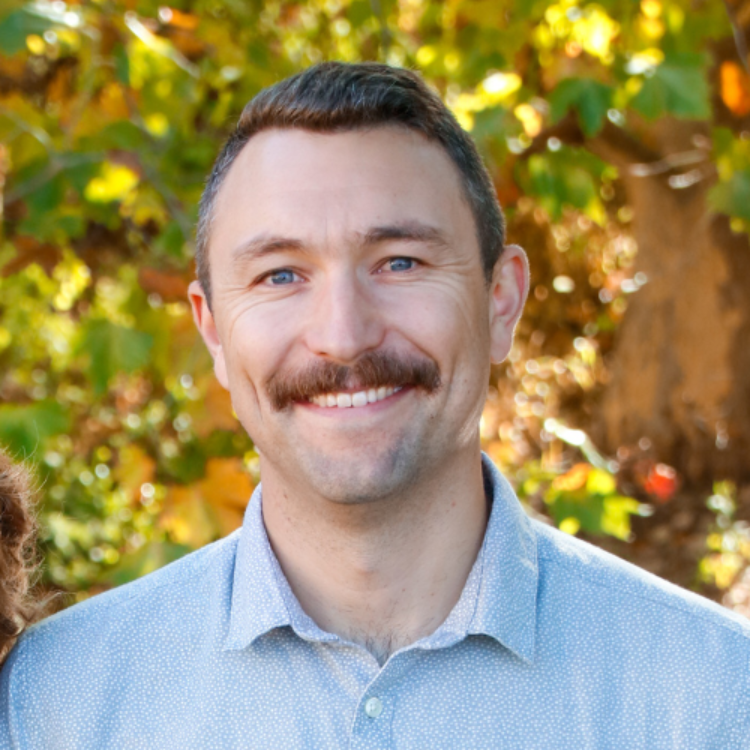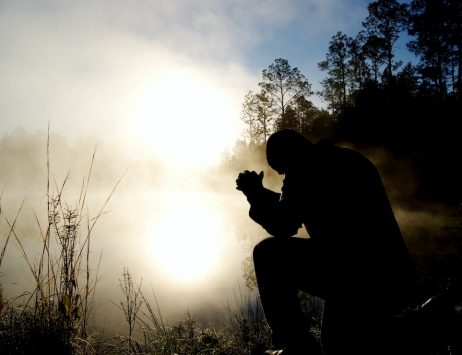This Lent, my wife and I decided to read Abandonment to Divine Providence by Jean-Pierre de Caussade. I expected spiritual insights, but I didn’t expect how much this book would challenge my daily approach to faith. Again and again, its message came back to a single, simple truth: sanctity is found in the present moment.
It reminded me of a homily I heard in college—one that has stuck with me for years. Our chaplain had a way of making deep spiritual truths practical, and on this particular day, he offered a piece of advice that would shape how I approach life’s uncertainties:
“Sometimes, all you can do is take the next best step.”
That one sentence sums up the message of Abandonment to Divine Providence. We don’t need to have everything figured out. We don’t need to understand the full picture. We just need to trust God and take the next step.
And yet, too often, we miss the sanctity available to us in this moment. At the risk of turning this into a sci-fi article, we get the time and space wrong. We think sanctity is something we’ll step into later, in a different season of life. Or we imagine it as something out there, waiting for us on some grand adventure. Or we shrink it down to something purely internal, something that happens in quiet prayer but never spills over into the way we love and serve others.
But Abandonment to Divine Providence reminds us that sanctity isn’t waiting for us in another time, another place, or in solitude—it’s found here and now, in the life we’re actually living.
The Trap of Time
We tend to think of sanctity as something we’ll get to later. This is especially true as parents of young kids.
Later, we’ll be more patient.
Later, we’ll have more time to pray.
Later, we’ll finally be good enough to be saints.
It’s a tempting illusion because “later” always feels safer than “now.” But sanctity isn’t something we put on hold until life slows down or we feel more prepared. It’s something we step into today.
This is exactly why that college homily struck me so deeply. I was constantly worrying about my future, trying to make sure I was on the “right” path. But our chaplain’s advice cut through all that anxiety:
“Sometimes, all you can do is take the next best step.”
You don’t have to figure out the next ten steps. You don’t have to have the perfect plan for your spiritual life. All you need to do is take the next best step of faithfulness, right now.
That’s it. My wife and I still quote our chaplain, almost 15 years later.
Sanctity isn’t waiting for us in the future. It’s not something we’ll grow into “someday.” It’s in the choices we make today.
The Trap of Space
We also tend to think sanctity happens out there—on a mission trip, in a monastery, in some big spiritual initiative. We assume that if only our circumstances were different, we’d finally be able to live as saints.
But Abandonment to Divine Providence reminds us that sanctity isn’t about escaping our lives—it’s about embracing them.
Caussade writes: “The duties of each moment are the shadows beneath which hides the divine operation.”
That means sanctity isn’t just found in a retreat center or a distant country—it’s found in the life we’re living right now. It’s in wiping sticky hands and folding laundry. It’s in answering emails with patience. It’s in choosing to be kind when we don’t feel like it.
God isn’t calling us to a different life so we can become saints. He’s calling us to sanctity in the life we already have.
The Trap of Solitude
The other mistake we make is thinking sanctity is a purely interior thing—just between us and God. We assume it’s about our personal prayer, our spiritual reflections, our private growth.
Of course, prayer is essential. But sanctity isn’t just something that happens inside of us—it happens between us and the people God places in our lives.
This is where I’ve been challenged the most. It’s easy to get lost in spiritual reading, journaling, or deep reflection and feel like I’m growing. But sanctity isn’t just about thinking holy thoughts—it’s about living them out.
For me, that means sanctity happens when I stop what I’m doing to listen—really listen—to my son who just has to tell me about his latest LEGO creation. It happens when I choose patience over frustration when everyone seems to need something at once. It happens when I show up, even when I’m tired, even when it would be easier to withdraw.
For someone else, it might mean calling a friend who’s struggling, forgiving a coworker who’s difficult to love, or making time for someone who just needs to be seen.
Jesus tells us plainly: “By this all men will know that you are my disciples, if you love one another.” (John 13:35)
Sanctity isn’t just an idea in our minds. It’s a relationship with God that is expressed in action.
As Abandonment to Divine Providence reminds us: “When God requires action, sanctity is found in activity.“
The Sacrament of the Present Moment
Sanctity isn’t found in some far off season of life. It’s not waiting for us somewhere outside of our vocation. It’s not something we keep locked inside our own thoughts. It’s here. Now. In the life we’re actually living.
We don’t need to have everything figured out. We don’t need to wait until we feel ready. We just need to take the next step—the next act of faith, the next choice to love, the next moment of surrender.
And then the next. And the next.
That’s how sanctity is lived—not in grand plans or distant dreams, but in the quiet, faithful choices of today.
So whatever is in front of you today—big or small—just take the next best step.




